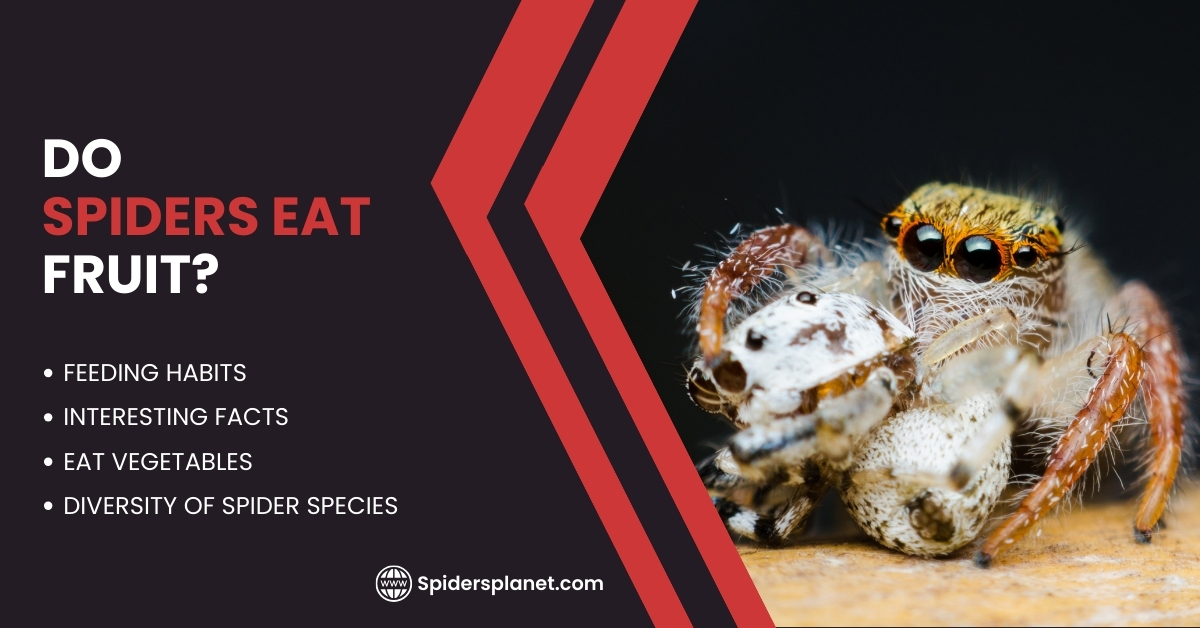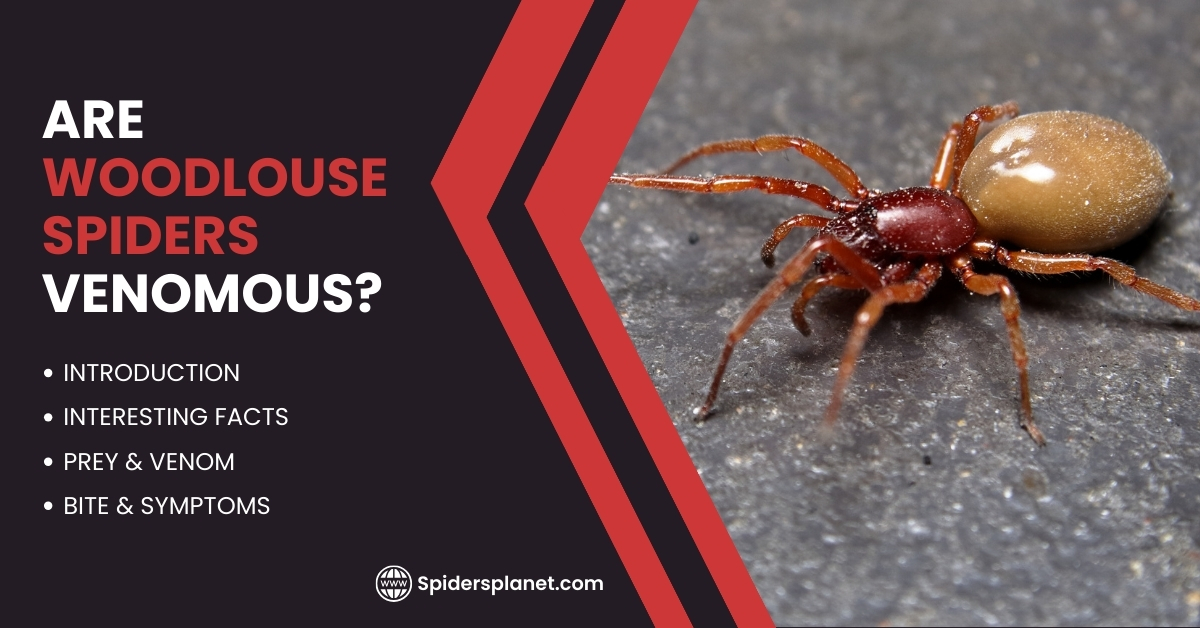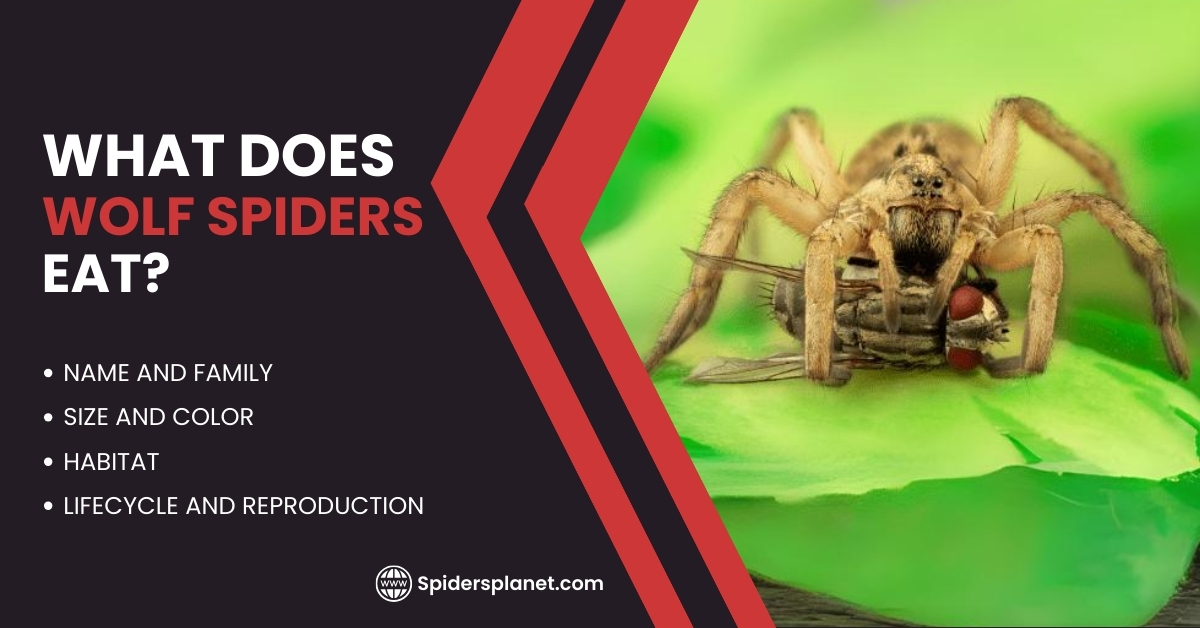Spiders, often imagined as silent weavers of webs, may not be as quiet as we think. The question arises: do spiders make noise? Surprisingly, some spiders do produce sounds, and not all of them remain silent.
Certain spider species have unique ways of communicating through sound, emitting hisses, purrs, and other intriguing noises.
By the end of this article, you will be able to learn and understand the sounds produced by different types of spiders, the types of sounds different spiders make, how they produce these noises, and the reasons behind their communication methods.
If you are curious to unravel the mystery of their secret language of sound, keep reading!
Do Spiders Make Noise?
Yes, spiders can indeed produce sounds despite lacking vocal cords. They use several methods for this purpose. Some spiders engage in stridulation, creating sounds by rubbing specific body parts together, serving functions like communication, defense, or hunting.
Others generate vibrations in their webs to convey messages or attract prey. Additionally, certain spiders can make clicking sounds by grinding their fangs together, offering another form of non-vocal communication.
These diverse mechanisms highlight the adaptability of spiders in using sound for various ecological purposes.
What Noise Do Spiders Make? Different Types:
The types of noises spiders make vary depending on the species. Some spiders are completely silent, while other spiders can produce a variety of noises using different mechanisms.
Stridulation:
Some spiders create sounds through a process called stridulation, where they rub body parts together, akin to rubbing legs or other appendages against each other. This can result in a range of sounds, often serving communication or defensive purposes.
Vibrations:
In addition, some spiders generate vibrations in their silk webs, which can function as a form of communication or be used to attract prey.
Hissing:
Larger spiders, such as tarantulas, employ hissing as a common defensive sound to deter predators. This noise is generated by pushing air by their mouthparts.
Purring:
Tarantulas make sounds like purring sounds; why they make such sounds is not understood. But the general idea is that they make these noises for the sake of communicating with their young ones or maybe for stress relief purposes.
Clicking:
Some spiders use clicking sounds generated by drumming their fangs against the ground. These noises are produced to amuse or allure their mates.
Chirping:
Some spiders create a chirping sound by rubbing body parts together in a process called stridulation. This serves as a distinctive mating call.
Buzzing:
Golden orb weavers and some other orb weavers can produce a high-pitched buzzing sound by vibrating their webs. This behavior is thought to facilitate communication within the web.
Various spiders can create scraping, drumming, or tapping sounds, each with its unique purpose for communication or defense strategies.
Also Read:
- Does Lysol Kill Spiders? Know How With 4 Simple Alternatives
- Brown Recluse Spider Bite: Symptoms, Treatment & Preventions
Why Do Spiders Make Sounds?
Spiders engage in various sound-producing behaviors for a range of purposes:

Defense:
Tarantulas and big spiders hiss and drum as a way to protect themselves. Hissing is a warning sound they make when they feel threatened, often while showing their front legs and fangs.
Drumming, done by spiders like wolf spiders, creates vibrations to warn off predators or signal danger to other spiders. These sounds are like natural alarms that help spiders stay safe.
Some spider mothers produce sounds to communicate with their offspring, enhancing protection against predators.
Communication:
Often, spiders make sounds to find mates. Male spiders create chirping, buzzing, or drumming sounds to attract female spiders. Some orb-weaving spiders can “strum” their webs, using vibrations to talk to other spiders.
These signals share information like danger, food, or other important messages within the spider community. It is like a special language that helps spiders communicate and survive together.
Hunting:
Some spiders use sound to catch food. Spiders with webs feel the vibrations when their prey gets stuck, helping them find and catch it.
Others, like the wolf spider, make sounds to trick insects into coming closer, making it easier for the spider to catch them. So, for these spiders, sound is like a helpful tool for hunting.
Spiders who make sounds:
Some of the species of spiders that produce different noises are as under:
- Tarantula spiders are recognized for their hissing and purring. The hissing serves as a defensive tactic to discourage predators, while the purring is believed to function as a means of communication with their offspring.
- Wolf Spiders can produce a clicking sound by drumming their chelicerae (fangs) against the ground. This behavior is considered a method for attracting potential mates.
- Jumping Spiders use stridulation, creating a chirping sound. This sound is theorized to play a role in attracting mates.
- Orb Weavers, like the golden orb weaver, are capable of generating a high-pitched buzzing sound. This sound is believed to serve as a form of communication within the spider’s web.
- Whistling spiders from Australia are recognized for the unique whistling sounds they produce. They use these sounds both to attract potential mates and to warn off predators.
Can Spiders Communicate?
Yes, spiders communicate through vibrations, chemicals, visuals, and touch. For instance, orb weavers use web vibrations for mating, wolf spiders leave pheromones to attract mates, jumping spiders display visuals to attract mates, and tarantulas use touch to communicate with their young.
These varied communication methods help spiders with mating, finding food, avoiding predators, and caring for their offspring, showcasing their ability to communicate without vocal cords or complex language.
Interesting Questions related to Spiders Sounds:
What is the term for the sound produced by spiders?
There is no singular term for the sound of a spider, as it varies based on the species and the method of sound production.
For instance, the hissing sound emitted by a tarantula is referred to as a “hiss,” while the chirping sound of a jumping spider is identified as a “chirp.” Others are clicking, buzzing, whistling.
Do Brown Recluses Create Sounds?
No, brown recluse spiders do not generate audible sounds. They are stealthy hunters relying on webs and camouflage for prey capture.
Do Black Widows Produce Sounds?
Black widows are also silent spiders, utilizing webs for prey capture without needing to make sounds for mate attraction or predator warning.
Do House Spiders Generate Noise?
While house spiders may produce a faint clicking sound as they move, it is generally too subtle for human ears to detect, rendering them predominantly silent.
Do Spiders Scream?
Spiders lack vocal cords, preventing them from screaming like humans. Nevertheless, in certain situations, a spider under attack might emit a high-pitched squeak reminiscent of a scream.
Some Bonus Answers
Can Spiders Bark Similar to Dogs?
No, spiders cannot bark like dogs. Their sound production is confined to methods such as stridulation and vibration.
Can Spiders Grow?
Spiders cannot growl, akin to animals with vocal cords. Though some may produce hissing or buzzing sounds, these are not considered growls in the traditional sense.
Do Spiders Create Noise While Walking?
While the majority of spiders move quietly, certain species, like house spiders, may generate a faint clicking sound.
This sound results from their claws clicking against the surface while walking, and typically, human ears cannot detect that sound.
Do Spiders Make Sounds When Dying?
No, spiders do not emit any sounds upon death. Their bodies lack mechanisms for sound production after expiration.
Do Spiders Produce Noise at Night?
Some spiders are more active during the night, and if they generate sounds, these might be more noticeable in the quiet nighttime environment.
However, it does not imply that spiders exclusively make noise at night, they can vocalize during the day as well.
Final Thoughts with “Do Spiders Make Noise Facts”:
- Spiders are not as silent as commonly perceived.
- The world of spider sounds is diverse, encompassing hisses, purrs, clicks, and even whistles.
- Various species employ different methods of communication, including stridulation, vibrations, and visual signals.
- Spiders make sounds for distinct purposes, such as defense, communication, and hunting.
- Notable examples include tarantulas hissing for defense, orb weavers vibrating webs for communication, and wolf spiders clicking to attract mates.
- Spiders also communicate through chemicals and tactile signals.
- The ability to make sounds plays a crucial role in spiders’ lives, helping them mate, find food, avoid predators, and care for their young.
- Different spider species exhibit unique sound-producing behaviors, adding an intriguing layer to their complex world of communication.
I trust this guide aids in your comprehension of spiders’ sound behavior.




Leave a Reply